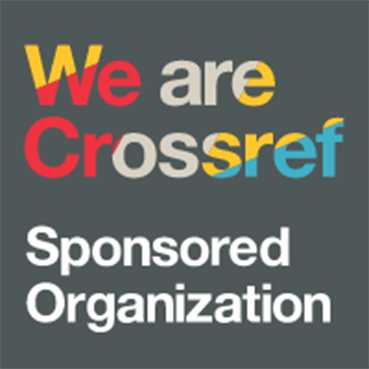Kesatuan Hati dan Diri (KHD) dalam Kurikulum Merdeka: Sebuah Kajian Integratif (Studi Kasus MAN 2 Banjarmasin)
DOI:
https://doi.org/10.47766/almabhats.v9i1.3387Keywords:
Kesatuan Hati dan Diri (KHD), Kurikulum Merdeka, Pendekatan Holistik, Pendidikan KarakterAbstract
Abstract: This research focuses on the application of the Unity of Heart and Self (UHS) concept in the context of the independent curriculum using action research methods. Through planning, action, observation, and reflection cycles, the researcher designed and implemented UHS-based interventions and evaluated the effects and challenges of this implementation. The action research method was combined with other qualitative methods such as in-depth interviews and case studies to understand the perceptions and experiences of various parties involved. The results of this study are expected to provide valuable insights into how the UHS concept can be integrated in the context of the independent curriculum and the effects of such integration. The study results show that UHS emphasizes a holistic and student-centered approach, through the integration of technology, character education, student well-being support, teacher development, community participation, and respect for children's rights. The implementation of these principles aims to shape independent, virtuous, and contributive individuals.
Abstrak: Penelitian ini berfokus pada penerapan konsep Kesatuan Hati dan Diri (KHD) dalam konteks kurikulum merdeka menggunakan metode penelitian tindakan. Melalui siklus perencanaan, tindakan, pengamatan, dan refleksi, peneliti merancang dan mengimplementasikan intervensi berbasis KHD dan mengevaluasi efek serta tantangan dari implementasi tersebut. Metode penelitian tindakan dikombinasikan dengan metode kualitatif lainnya seperti wawancara mendalam dan studi kasus untuk memahami persepsi dan pengalaman berbagai pihak yang terlibat. Hasil dari penelitian ini diharapkan dapat memberikan wawasan berharga tentang bagaimana konsep KHD dapat diintegrasikan dalam konteks kurikulum merdeka dan efek dari integrasi tersebut. Hasil penelitian menunjukkan KHD menekankan kepada pendekatan holistik dan berpusat pada siswa, melalui integrasi teknologi, pendidikan karakter, dukungan kesejahteraan siswa, pengembangan guru, partisipasi masyarakat, dan penghormatan hak anak. Implementasi prinsip-prinsip ini bertujuan membentuk individu merdeka, berbudi pekerti, dan kontributif.
References
Agus, C., Cahyanti, P. A. B., Widodo, B., Yulia, Y., & Rochmiyati, S. (2020). Cultural-Based Education of Tamansiswa as a Locomotive of Indonesian Education System (pp. 471–486). https://doi.org/10.1007/978-3-030-15604-6_29
Agus, C., Saktimulya, S. R., Dwiarso, P., Widodo, B., Rochmiyati, S., & Darmowiyono, M. (2021). Revitalization of Local Traditional Culture for Sustainable Development of National Character Building in Indonesia (pp. 347–369). https://doi.org/10.1007/978-3-030-78825-4_21
Anwar, K. (2021). Pancasila Village, Multicultural Education and Moderation of Diversity in Indonesia. Nazhruna: Jurnal Pendidikan Islam, 4(2), 221–234. https://doi.org/10.31538/nzh.v4i2.1238
Asmanto, E. (2015). Revitalisasi Spiritualitas Ekologi Perspektif Pendidikan Islam. TSAQAFAH, 11(2), 333. https://doi.org/10.21111/tsaqafah.v11i2.272
Dewantara, K. H. (1968). Karya Ki Hajar Dewantara. In Jogjakarta: Majelis Leluhur Taman Siswa (1st ed.). Taman Siswa Press.
Eko Putri, I. A. (2012). Konsep Pendidikan Humanistik Ki Hajar Dewantara dalam Pandangan Islam. IAIN Walisongo.
Evers, A. T., Messmann, G., & Kreijns, K. (2024). Distributed leadership, leader-member exchange and innovative work behavior: the mediating role of basic psychological needs satisfaction. Current Psychology, 43(12), 11037–11049. https://doi.org/10.1007/s12144-023-05048-4
Malviya, N., Malviya, S., & Dhere, M. (2023). Transformation of Pharma Curriculum as Per the Anticipation of Pharma Industries-Need to Empower Fresh Breeds with Globally Accepted Pharma Syllabus, Soft Skills, AI and Hands-on Training. Indian Journal of Pharmaceutical Education and Research, 57(2), 320–328. https://doi.org/10.5530/ijper.57.2.41
Mohiuddin, A. (2018). Book Review: Southeast Asian Muslims in the Era of Globalization. Journal of Current Southeast Asian Affairs, 37(3), 203–206. https://doi.org/10.1177/186810341803700311
Srimulyani, E. (2012). Women and Pesantren Education: History, Kinship, and Contents. In Women from Traditional Islamic Educational Institutions in Indonesia (pp. 37–62). Amsterdam University Press. https://doi.org/10.1017/9789048516216.002
Sugiharto, F., & Nurani, Q. (2022). Ki Hajar Dewantara: Pendidikan Agama Islam Sebagai Proses Transformasi Sosial. Nusantara: Jurnal Pendidikan Indonesia, 2(1), 87–106. https://doi.org/10.14421/njpi.2022.v2i1-6
Taufikin, T. (2021). Pesantren as the Three Centers of Education Perspective of Ki Hadjar Dewantara. Dinamika Ilmu, 21(1), 101–119. https://doi.org/10.21093/di.v21i1.3149
Zulkarnaen, Z., Sulaeman, N. F., Nuryadin, A., & Mineta, I. (2023). Behavior toward energy: An exploration of high school students’ perspective in Indonesia. International Journal of Evaluation and Research in Education, 12(1), 69–75. https://doi.org/10.11591/ijere.v12i1.23600
Downloads
Published
How to Cite
Issue
Section
License
Copyright (c) 2024 Guntur Amanda Prasetya, Hasan Syahputra

This work is licensed under a Creative Commons Attribution-ShareAlike 4.0 International License.





